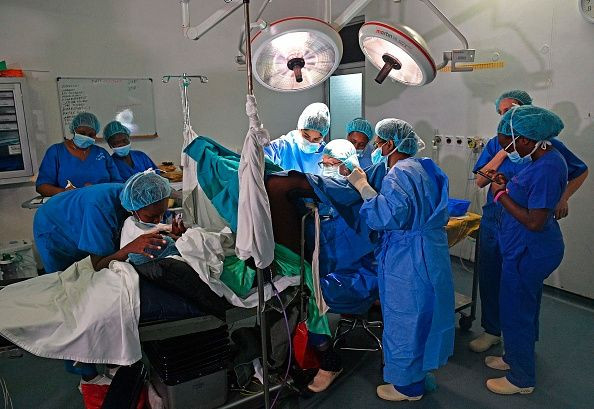What Is MRKH Syndrome? Women Share Brave Stories Of Surviving Co-genital Abnormality

Kaylee Moates from Arizona who was born without a vagina because of a rare co-genital abnormality known as the Mayer-Rokitansky-Küster-Hauser or the MRKH syndrome has finally stepped forward to talk about her condition and raise funds for a reassignment surgery.
The 22-year-old first learned about her condition when she was 18. Due to her rare condition, she never had a menstrual period.
MRKH is a "disorder that occurs in females and mainly affects the reproductive system. This condition causes the vagina and uterus to be underdeveloped or absent, although external genitalia is normal. Affected women usually do not have menstrual periods due to the absent uterus," according to Genetics Home Reference.
According to the website, the early signs start showing typically around the age of 16.
According to a study by The National Centre for Biotechnology information, 1 out of 4500 women is affected by MRKH. Women diagnosed with MRKH syndrome have a female chromosome pattern (46, XX) and normally functioning ovaries. Even though their pubic hair growth and breast development seem to be normal, it is highly unlikely for them to carry a baby without assisted reproduction.
There are mainly two classifications of this syndrome. While MRKH Type I only affects the reproductive system, Type II shows abnormalities in other body parts as well. MRH syndrome Type II affects the growth of the kidney or develops skeletal abnormalities, especially the spinal bones. Some people can also encounter hearing loss or problems related to the heart.
In Moats' case, a YouTube video was made by Barcroft TV in which she spoke about her rare case and how she copes with the fact of being born without a cervix, uterus or a vagina.
“It makes me feel less of a woman. I'm still trying to accept myself, accept what I have and not dwell on it,” she says in the video.
Moats' sister, Amanda had also started a GoFundMe page to raise money for her sister’s gender reassignment surgery. As of August 2017, they have raised $16,997.
Although this syndrome is quite rare, it is not so uncommon as several women in the past have spoken about facing the condition and living with it.
Back in 2014, Briana Fletcher shared her story of living with the MRKH syndrome since she found out about it in 2010. Speaking about her condition, Fletcher wrote a column for Cosmopolitan where she revealed that she first noticed something different about her body when she was 14 and had not gotten her periods.
Fletcher also wrote about an online community where women share their pain and stories. “The weight of our inability to conceive is heavy, especially once we begin to marry and think about starting families, but thankfully, the online MRKH community is fantastic. The other women in the MRKH community and I share everything from test results to fertility treatment details and symptoms to sex advice. I rely on women with MRKH who are all over the world; they are my sisters,” she wrote.
A similar article appeared again in March 2017 when Natasha Bishop spoke about her encounter with the syndrome. Bishop was born without a uterus, a cervix, only one ovary, and a partial vagina.
Bishop spoke to Cosmopolitan about the same and confessed how she felt peer pressured and embarrassed because she did not get her periods till she was 15.
“I was diagnosed with Mayer Rokitansky Küster Hauser Syndrome (MRKH), an incredibly rare disease caused by a problem with development in the womb. But it took a while to get there. They sent me for test after test and scan after scan to get the final diagnosis, and I even had to undergo a hormone test to check that I was actually female,” she said.
Bishop also shared how she struggled with the idea of the syndrome initially, but a nurse named Nuala helped her get through it. “Luckily, I had a nurse called Nuala there to help me through it. She was hilarious, and I felt comfortable around her which was important because it's such an intimate and emotional thing.”
© Copyright IBTimes 2024. All rights reserved.






















